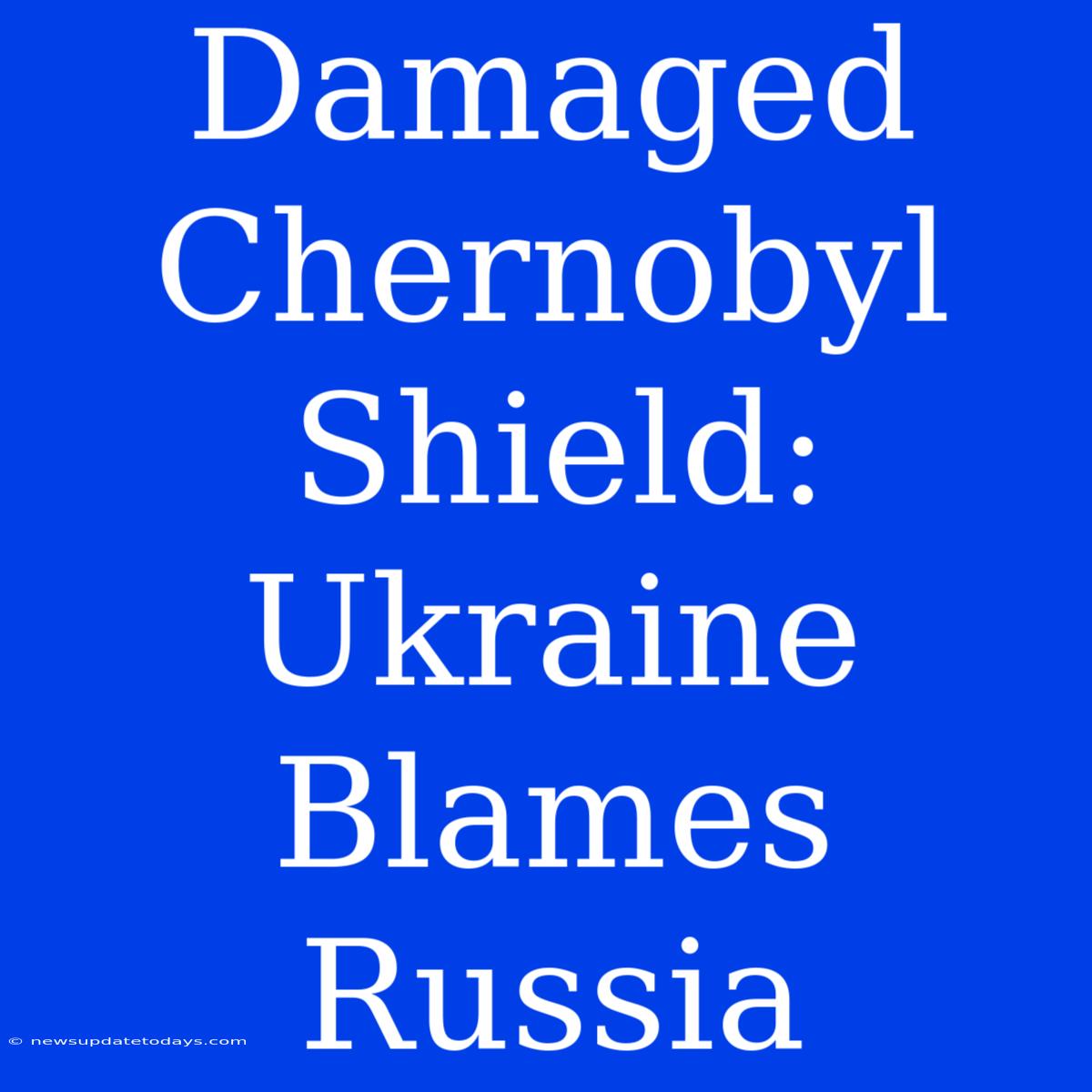Damaged Chernobyl Shield: Ukraine Accuses Russia of Sabotage
The damaged Chernobyl sarcophagus has reignited concerns about the long-term safety of the site, with Ukraine directly accusing Russia of sabotage. This incident highlights the ongoing fragility of the situation and raises serious questions about international security and nuclear safety.
The Accusation and the Fallout
Ukraine's government has issued a strong condemnation, asserting that Russian forces, during their occupation of the Chernobyl Nuclear Power Plant, caused significant damage to the New Safe Confinement (NSC), a massive arch-like structure built to encase the destroyed reactor. Reports suggest damage to the power supply, potentially impacting the crucial monitoring and ventilation systems within the NSC. The full extent of the damage remains unclear, pending a thorough investigation, but the accusation has galvanized international concern.
The alleged sabotage is not simply a matter of vandalism; it represents a potential threat to the long-term containment of radioactive materials. The NSC is critical in preventing further release of dangerous isotopes into the environment, and any compromise to its integrity jeopardizes the safety of Ukraine and neighboring countries.
The Significance of the Chernobyl NSC
The Chernobyl disaster in 1986 remains one of history’s most devastating nuclear accidents. The original sarcophagus, hastily constructed after the meltdown, was structurally unsound and prone to leaks. The NSC, completed in 2019 after years of international collaboration and substantial funding, represented a monumental engineering feat and a vital step in securing the site. Damaging this structure undermines years of work and billions of dollars invested in ensuring the long-term safety of the Chernobyl site.
International Response and Future Implications
The international community has responded with alarm to Ukraine's accusations. Organizations like the IAEA (International Atomic Energy Agency) are monitoring the situation closely and calling for access to the site for a complete assessment of the damage. The long-term implications of this incident extend beyond immediate safety concerns. It raises questions about the security of nuclear facilities during times of conflict and the responsibility of occupying forces to protect such sites. Furthermore, it underscores the need for increased international cooperation to safeguard nuclear materials and prevent future catastrophes.
The full scope of the damage and its potential impact on the environment and public health remain unknown. A thorough independent investigation, facilitated by international experts, is crucial to determine the precise extent of the damage and assess the necessary remedial actions. The situation underscores the persistent dangers inherent in nuclear power and the paramount importance of upholding international norms and protecting critical nuclear infrastructure, even amidst armed conflict. The ongoing conflict in Ukraine highlights the vulnerability of these vital sites and the urgent need for improved safety protocols and international oversight.

